Dagstuhl Seminar 18252
Ubiquitous Gaze Sensing and Interaction
( Jun 18 – Jun 21, 2018 )
Permalink
Organizers
- Lewis Chuang (LMU München, DE)
- Andrew Duchowski (Clemson University, US)
- Pernilla Qvarfordt (FX Palo Alto Laboratory, US)
- Daniel Weiskopf (Universität Stuttgart, DE)
Contact
- Andreas Dolzmann (for scientific matters)
- Annette Beyer (for administrative matters)
Impacts
- Dataset and metrics for predicting local visible differences : article - Wolski, Krzysztof; Steed, Anthony; Seidel, Hans-Peter; Myszkowski, Karol; Giunchi, Daniele; Ye, Nanyang; Didyk, Piotr; Mantiuk, Radoslaw; Mantiuk, Rafal K. - Saarbrücken : MPII, 2018. - 14 pp. - (ACM transactions on graphics ; preprint).
- Differential Privacy for Eye Tracking Data : article in ETRA '19 Proceedings of the 11th ACM Symposium on Eye Tracking Research & Applications - Liu, Ao; Xia, Lirong; Duchowski, Andrew; Holmqvist, Kenneth; Bailey, Reynold; Jain, Eakata - New York : ACM, 2019. - 10 pp..
- Eye tracking support for visual analytics systems : foundations, current applications, and research challenges : article in ETRA '19 Proceedings of the 11th ACM Symposium on Eye Tracking Research & Applications - Silva, Nelson; Blaschek, Tanja; Jianu, Radu; Rodrigues, Nils; Weiskopf, Daniel; Schreck, Tobias; Raubal, Martin - New York : ACM, 2019. - 10 pp..
- EyeVEIL : degrading iris authentication in eye tracking headsets : article in ETRA '19 Proceedings of the 11th ACM Symposium on Eye Tracking Research & Applications - John, Brendan; Koppal, Sanjeev; Jain, Eakata - New York : ACM, 2019. - 5 pp..
The miniaturization of optical devices and advances in computer vision have led to an increasing integration of gaze-sensing capabilities in computing systems, from desktop computing to virtual reality and wearables. Everyday scenarios include computer games that select the camera viewpoint given the user’s gaze and robotic agents that infer user engagement from gaze behavior. Numerous computational challenges will have to be addressed before we can realize the full potential of integrating gaze tracking in everyday settings. Ubiquitous gaze sensing and interaction require a framework that can accommodate compatible solutions from data acquisition to signal processing to pattern classification to visualization and analytics.
Thus, this Dagstuhl Seminar will bring together computer scientists and gaze researchers to answer the following questions: (1) What can computing systems reliably sense from user’s gaze? (2) How can human-computer interactions be improved by considering gaze information? From the computing sciences, we invite experts from computer graphics, signal processing, visualization, human-computer interaction, data analytics, pattern analysis and classification. Also, we invite researchers that employ gaze tracking across diverse disciplines: geo-information systems, medicine, aviation, psychology, neuroscience, etc. This will foster a dialogue that will allow: (1) computing scientists to understand the problems that are faced in recording and interpreting gaze data, (2) gaze researchers to consider how modern computing techniques could potentially advance their research. In addition, we will discuss the ethical and privacy concerns of deploying gaze monitoring devices in everyday scenarios.
The seminar will begin with defining on the problems of deploying gaze-tracking devices in the real world, as well as the reasons for doing so. Participants will present short talks on their area of research and how it relates to the deployment of gaze sensing and interaction in the real world. Thereafter, seminar participants will work in small groups on selected problems. Possible topics are algorithms for robust gaze acquisition, gaze metrics for user interactions, visualization of gaze data for individual- and group-level analyses, and integration of gaze inputs for human-computer interfaces. Plenary talks and interleaved discussions will re-focus the working groups. By the end of the seminar, we will develop a research roadmap for the successful deployment of ubiquitous gaze sensing and interaction. This will include a statement on the ethical and privacy considerations of doing so. Both academic and industrial participants are encouraged to follow up from these discussions to generate novel research lines after the seminar.
 Lewis Chuang, Andrew Duchowski, Pernilla Qvarfordt, and Daniel Weiskopf
Lewis Chuang, Andrew Duchowski, Pernilla Qvarfordt, and Daniel Weiskopf
The miniaturization of optical devices and advances in computer vision, as well as a lower cost point, have led to an increased integration of gaze sensing capabilities in computing systems, from desktop computing to mobile devices and wearables. With these advances in technology, new application areas for gaze sensing are emerging. Eye tracking is no longer restricted to a well-controlled laboratory setting, but moving into everyday settings. When technology makes forays into new environments, there are many questions to be resolved and challenges to be met, from computational to applications and interaction. Ubiquitous gaze sensing and interaction require a framework that can accommodate compatible solutions from data acquisition to signal processing to pattern classification and computer vision to visualization and analytics. Including gaze data into interactive applications requires knowledge of natural gaze behaviors as well as how gaze is coordinate with other modalities and actions.
Therefore, this Dagstuhl Seminar brought together computer scientists and gaze researchers to explore future ubiquitous applications and to identify requirements for reliable gaze sensing technology. Ubiquitous gaze sensing and interaction cannot be achieved by research discipline, but require knowledge and scientific advancement in multiple fields. And, of utmost importance is that researchers from different disciplines meet, interact, and address their common challenges. For this reason, experts in computer graphics, signal processing, visualization, human-computer interaction, data analytics, pattern analysis and classification along with researchers who employ gaze tracking across diverse disciplines attended: geo-information systems, medicine, aviation, psychology, neuroscience, etc. This fostered a dialogue and allowed: (1) computing scientists to understand the problems that are faced in recording and interpreting gaze data, (2) gaze researchers to consider how modern computing techniques could potentially advance their research. In addition, we discussed the ethical and privacy concerns of deploying gaze monitoring devices in everyday scenarios.
The workshop was organized to identify identifying possible scenarios and pinpointing the associated challenges of developing and deploying ubiquitous gaze sensing during the first day. Challenges identified by multiple scenarios, or the ones that were considered to be significant were the focus of in-depth cross-disciplinary groups. These challenges were discussed on the second day. In three sessions taking place during the day, five challenges were debated. "Data Privacy" and "Gaze + X" were two of the most important topics and received multiple dedicated sessions of discussion due to the high interest of the participants.
On the third day the Dagstuhl Seminar finally discussed future work and how to get the research community engaged in researching the various interesting topics covered. Some of the suggestions were to organize workshops at conferences and organizing a special issue focused on ubiquitous gaze sensing. Several of the discussion groups started brainstorming on papers covering the important topics raised at the workshop.
 Tanja Blascheck, Lewis Chuang, Andrew Duchowski, Pernilla Qvarfordt, and Daniel Weiskopf
Tanja Blascheck, Lewis Chuang, Andrew Duchowski, Pernilla Qvarfordt, and Daniel Weiskopf
- Amy Alberts (Tableau Software - Seattle, US)
- M. Stella Atkins (Simon Fraser University - Burnaby, CA) [dblp]
- Roman Bednarik (University of Eastern Finland - Joensuu, FI) [dblp]
- Hans-Joachim Bieg (Robert Bosch GmbH - Stuttgart, DE) [dblp]
- Maria Bielikova (STU - Bratislava, SK) [dblp]
- Leslie Blaha (Pacific Northwest National Lab. - Richland, US) [dblp]
- Tanja Blascheck (INRIA Saclay - Orsay, FR) [dblp]
- Andreas Bulling (MPI für Informatik - Saarbrücken, DE) [dblp]
- Lewis Chuang (LMU München, DE) [dblp]
- Andrew Duchowski (Clemson University, US) [dblp]
- Sara Irina Fabrikant (Universität Zürich, CH) [dblp]
- Nina Gehrer (Universität Tübingen, DE) [dblp]
- Hans Gellersen (Lancaster University, GB) [dblp]
- Kenneth Holmqvist (Universität Regensburg, DE) [dblp]
- Eakta Jain (University of Florida - Gainesville, US) [dblp]
- Radu Jianu (City - University of London, GB) [dblp]
- Enkelejda Kasneci (Universität Tübingen, DE) [dblp]
- Peter Kiefer (ETH Zürich, CH) [dblp]
- Krzysztof Krejtz (SWPS University - Warsaw, PL) [dblp]
- Kuno Kurzhals (Universität Stuttgart, DE) [dblp]
- David P. Luebke (NVIDIA - Charlottesville, US) [dblp]
- Radoslaw Mantiuk (West Pomeranian Univ. of Technology - Szczecin, PL) [dblp]
- Diako Mardanbegi (Lancaster University, GB) [dblp]
- Thies Pfeiffer (Universität Bielefeld, DE) [dblp]
- Pernilla Qvarfordt (FX Palo Alto Laboratory, US) [dblp]
- Michael Raschke (Blickshift GmbH - Stuttgart, DE) [dblp]
- Martin Raubal (ETH Zürich, CH) [dblp]
- Laura Trutoiu (Magic Leap - Seattle, US) [dblp]
- Daniel Weiskopf (Universität Stuttgart, DE) [dblp]
Classification
- computer graphics / computer vision
- mobile computing
- society / human-computer interaction
Keywords
- eye tracking
- signal processing
- pattern analysis
- user modeling
- ubiquitous computing

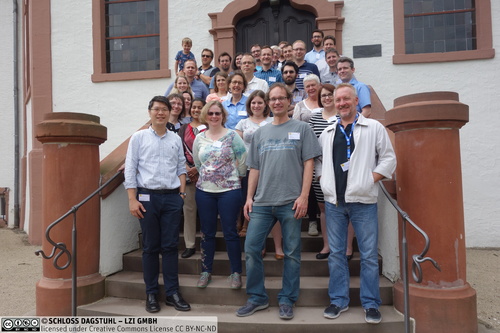
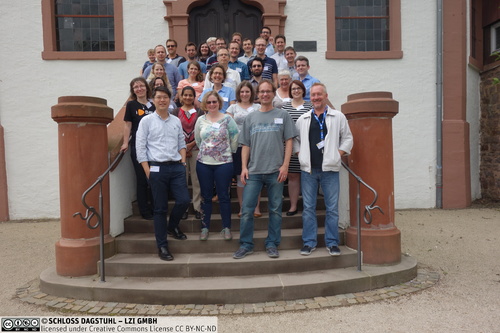
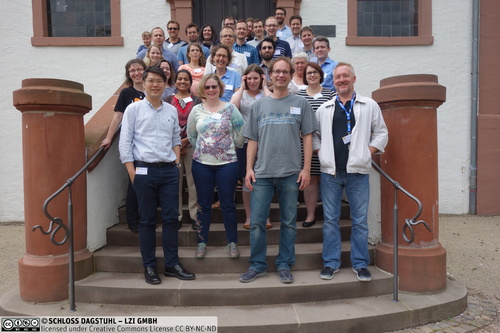
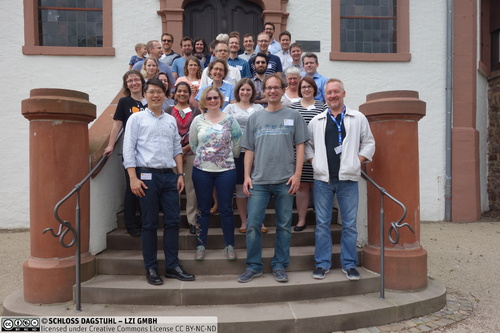
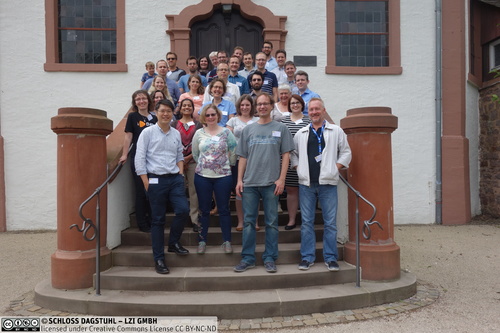
 Creative Commons BY 3.0 DE
Creative Commons BY 3.0 DE
